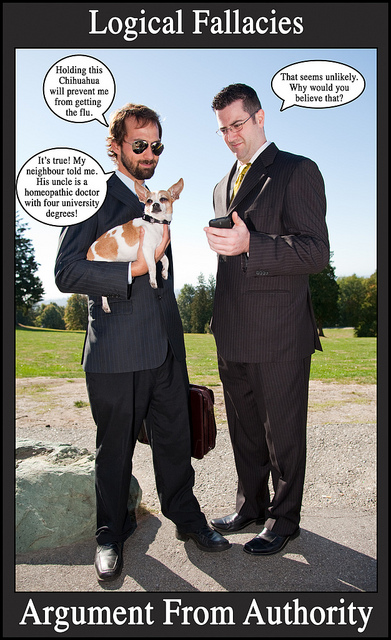
What are logical fallacies?
Logical fallacies are errors in reasoning that can make arguments invalid or unsound. They are often used to deceive or mislead others by presenting information that may seem convincing but is flawed. Everyone uses them!
Why Are Logical Fallacies Important?
Being aware of fallacies helps us critically evaluate arguments and avoid being misled.
Developing critical thinking skills and grasping logic principles are tools for effective communication, accurate judgments, and a pathway to seeking truth and fostering understanding.
Some Logical Fallacies
Ad hominem attack

Here is an example of a common logical fallacy known as the ad hominem argument, Latin for “argument against the person” or “argument toward the person.” An ad hominem argument goes like this: Person 1 makes a claim. There is something objectionable about Person 1Therefore, claim X is false. (Oaks 2024) Proverbs 12:15 says, “The way of a fool is right in his own eyes, But a wise man is he who listens to counsel.“
Argument from authority

Awareness of the “Argument from authority” fallacy is crucial. The most general structure of this argument is as follows: Person A claims that Person A is a respected scientist or other authority. Therefore, P is true. (Oaks 2024) John 8:32, “ And you will know the truth, and the truth will make you free.”
False dilemma
Be cautious of the “false dilemma” fallacy, where only two options are presented when there may be other possibilities to consider.
Guilt by association
This fallacy occurs when someone judges an individual based solely on their association with a particular group, regardless of whether they share the group’s beliefs or actions. It assumes that because someone belongs to a group, they must automatically share all the characteristics of that group, both positive and negative.
Composition Fallacy and Division Fallacy
Composition Fallacy occurs when someone assumes that what is valid for the parts must also be true for the whole.
Red Herring Fallacy

The red herring is as much a debate tactic as a logical fallacy. It is a fallacy of distraction and is committed when a listener attempts to divert an arguer from their argument by introducing another topic. This can be one of the most frustrating and effective fallacies to observe. The fallacy gets its name from fox hunting, specifically from using smoked herrings, which are red, to distract hounds from the scent of their quarry. Just as a hound may be prevented from catching a fox by distracting it with a red herring, an arguer may be prevented from proving his point by distracting him with a tangential issue.
(From www.logicalfallacies.info)
Division Fallacy
The opposite of the composition fallacy, division assumes that what is valid for the whole must also be true for the parts.
False Dichotomy
This fallacy occurs when someone presents only two options as the only possibilities, ignoring other alternatives.
Post Hoc Fallacy
This fallacy assumes that the first event causes the second because one event follows another.
Appeal to ignorance
Scientific debates, particularly around discoveries, can sometimes fall prey to appeal to ignorance. Someone might reject a new scientific theory because “we haven’t proven it yet,” which ignores the ongoing process of scientific exploration.
Appeal to fear
An appeal to fear fallacy is when someone tries to persuade others by instilling fear rather than presenting valid arguments or evidence. For example, someone might say, “If you don’t agree with me, something terrible will happen to you.” This fallacy capitalizes on emotions like anxiety or dread to manipulate others into accepting a particular viewpoint without sound reasoning.
Circular Reasoning (Begging the Question)
When someone uses their conclusion as a premise to prove their argument, for instance, “The Bible is the word of God because God inspired it, and we know this because the Bible says so.” This type of reasoning creates a loop where the initial claim is restated rather than providing independent evidence.
Examples: Quiz!
- Someone tries to persuade others by instilling fear rather than presenting valid arguments. For example, an individual might say, “If you don’t agree with me, terrible things will happen.” This fallacy preys on emotions rather than facts or reasoning. Remember, 2 Timothy 1:7 reminds us, “For God has not given us a spirit of timidity but of power and love and discipline..”
[Appeal to fear fallacy]
- Someone might say, “It’s either higher taxes and social programs or lower taxes and a strong economy,” when there are likely more nuanced solutions.
[False dichotomy fallacy]
- “Person A says we should invest more in education to improve society, but Person B responds by saying that Person A wants to bankrupt the country with excessive spending on unnecessary programs.” In this case, Person B misrepresents Person A’s argument by exaggerating it and attacking a distorted version of what was said. This type of fallacy aims to make it easier for Person B to dismiss the original argument without engaging with its true merits.
[Strawman fallacy]
- Online discussions can get heated; sometimes, people resort to attacking the character of the person they disagree with rather than addressing the arguments themselves. This shuts down productive conversation.
[Ad hominem fallacy]
- A politician might claim that their opponent’s policies will lead to economic collapse or increased crime rates without providing solid evidence. This tactic preys on people’s anxieties to win votes.
[Appeal to fear fallacy]
- “The team won the championship, so each player must be a champion.”
[Division Fallacy]
- “Each brick in the wall is lightweight, so the entire wall must be lightweight.”
[Composition Fallacy]
- “There’s no evidence that aliens exist, so they must not be real.”
[Appeal to ignorance]
- “I wore my lucky socks, and my team won. Therefore, my socks brought us victory.”
[Post Hoc Fallacy (Correlation ≠ Causation)]
- “The Bible is the word of God because God inspired it, and we know this because the Bible says so.”
[Circular Reasoning]
References
Oaks, Susan (2024) Creative Commons CC BY-NC 4.0, College Writing, Issues Analysis/ Logical Argument, from https://courses.lumenlearning.com/suny-esc-wm-englishcomposition1/chapter/text-evaluating-appeals-to-ethos-logos-and-pathos/
